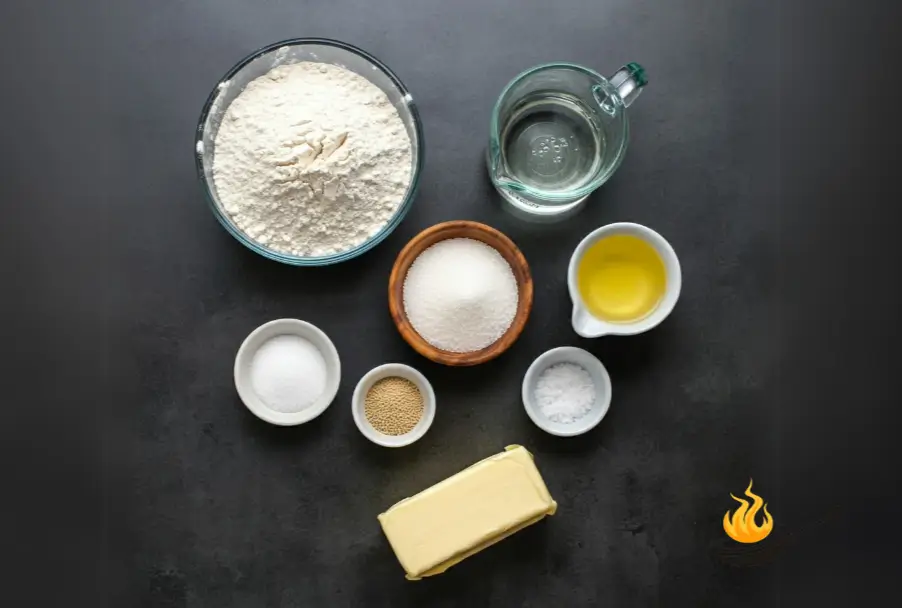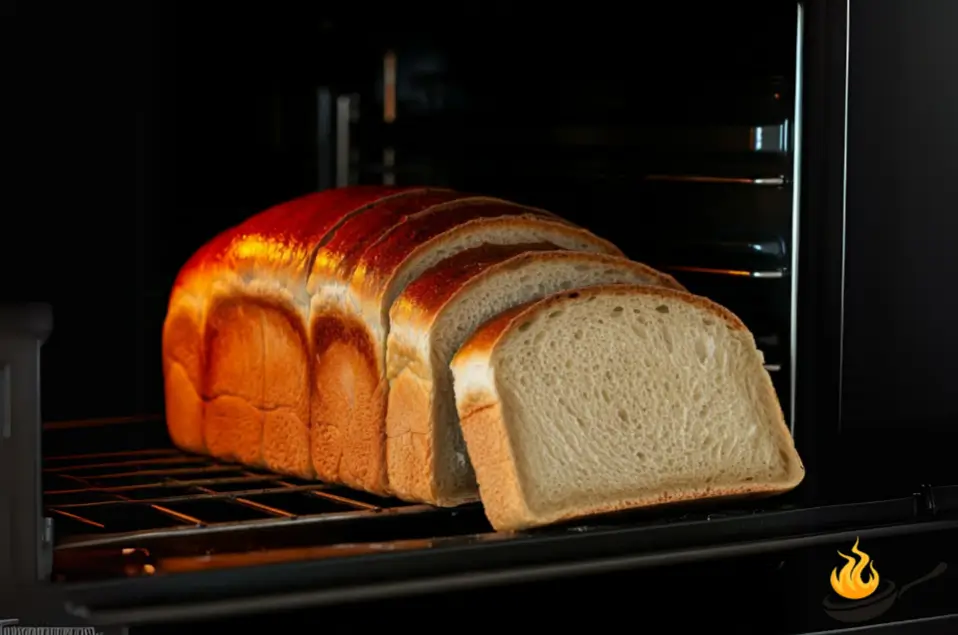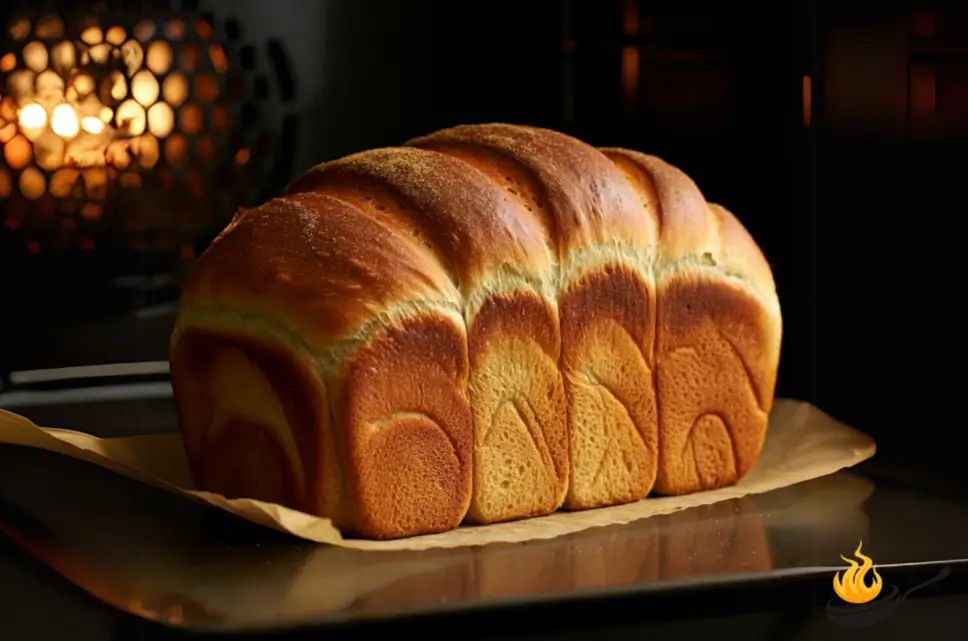There’s an undeniable comfort and satisfaction that comes from sinking your teeth into a slice of freshly baked homemade sandwich bread recipe. The aroma of yeast, butter, and toasted flour wafting through the kitchen is simply unparalleled. But beyond the sensory delights, baking your own sandwich bread from scratch offers a host of practical benefits – you control the ingredients, you save money, and you can tailor the flavor and texture to your exact preferences.
Whether you’re a seasoned bread baker or a complete novice, mastering the art of sandwich bread recipe is a rewarding and surprisingly easy skill to acquire. With just a handful of basic pantry staples and a little bit of time, you can enjoy soft, pillowy slices that elevate any sandwich, toast, or snack. In this comprehensive guide, I’ll walk you through every step of the process, from mixing the dough to slicing that first perfect loaf. Get ready to say goodbye to store-bought and hello to the ultimate homemade sandwich bread.
Table of Contents

Nutrition Information
Per Serving:
- Calories: 175
- Carbohydrates: 32g
- Protein: 4g
- Fat: 3g
- Sodium: 368mg
- Fiber: 1g
Why You’ll Love This Sandwich Bread Recipe
Simple, Straightforward Ingredients
This homemade sandwich bread recipe relies on just 6 basic pantry staples – flour, yeast, water, sugar, salt, and butter. No complicated techniques or hard-to-find items required!
Perfect Soft and Fluffy Texture
The ideal sandwich bread recipe should be light and airy yet still sturdy enough to hold your favorite fillings. This recipe delivers that perfect balance, resulting in a delightfully pillowy crumb.
Endless Versatility
Whether you’re making grilled cheese, avocado toast, or classic PB&J, this homemade bread elevates any sandwich. It also makes phenomenal toast, breadcrumbs, and croutons.
Save Money, Customize Flavor
Baking your own bread allows you to control the ingredients and customize the flavor to your tastes. Plus, it’s significantly more cost-effective than buying pre-sliced loaves at the grocery store.

Key Ingredients and Substitutions
All-Purpose Flour
Regular all-purpose flour is the foundation for this recipe. For the all-purpose flour, You can use whole wheat flour to replace up to 1 cup of the all-purpose flour in this recipe. This will result in a nuttier flavor and extra fiber.
- For a nuttier taste and added fiber,
- substitute up to 1 cup of the all-purpose flour with whole wheat flour.
Yeast
Active dry yeast is the key leavening agent that gives this homemade sandwich bread recipe its wonderful rise and fluffy texture. You can also use:
- Instant yeast (no proofing required)
- Fresh yeast (use about 2 times the amount)
Sugar
The granulated sugar in this recipe provides just the right amount of sweetness to balance the other flavors. You can also use honey, maple syrup, brown sugar, or coconut sugar as alternative sweeteners . You can replace it with:
- Honey or maple syrup
- Brown sugar
- Coconut sugar
Salt
Kosher salt or fine sea salt are both great options. Adjust the amount to taste preference.
Butter
Unsalted butter is used in this recipe as it gives the bread a rich, tender crumb texture. Substitute with:
- Olive oil or vegetable oil
- Vegan butter or margarine
Expert Tips for Sandwich Bread Success
Proof the Yeast Properly
Taking the time to proof the yeast ensures it’s active and ready to do its job. The water should be warm but not hot.
Knead Until Smooth and Elastic
Kneading develops the gluten structure, which is crucial for obtaining the ideal light and airy texture. Knead until the dough is smooth, not sticky.
Let It Rise Fully
Allowing the dough to rise until doubled in size is key. Don’t rush this step or the bread won’t achieve the perfect rise.
Shape the Loaf Tightly
Rolling and sealing the dough into a tight log shape is important for baking up with an even, consistent crumb.
Monitor Baking Time
Keep an eye on the bread towards the end of baking to prevent over-browning. The internal temperature should reach 195-205°F.
Variations and Customizations
Flavored Sandwich Breads
- Garlic Herb: Add 2 cloves minced garlic and 1 tablespoon chopped fresh herbs
- Cinnamon Raisin: Mix in 1 teaspoon ground cinnamon and 1/2 cup raisins
- Whole Wheat: Replace 1 cup all-purpose with 1 cup whole wheat flour
Dietary Modifications
- Gluten-Free: Use a 1-to-1 gluten-free flour blend
- Vegan: Replace butter with olive oil or vegan butter
Breakfast Breads
- Honey Oat: Stir in 1/2 cup rolled oats and 2 tablespoons honey
- Blueberry: Fold in 1 cup fresh or frozen blueberries
Storage and Reheating
Room Temperature Storage
- Keep baked loaves wrapped in foil or plastic at room temperature for up to 5 days.
Freezer Storage
- Slice and freeze individual portions for up to 3 months.
- Thaw at room temperature or in the microwave before serving.
Reheating Tips
- Wrap slices in foil and reheat in a 325°F oven for 5-10 minutes.
- For a crispy crust, bake directly on the oven rack.
- Toast individual slices for a fresh-baked texture.
Serving Suggestions
Classic Sandwich Ideas
- Grilled cheese
- PB&J
- Deli meat and cheese
- Egg salad or tuna salad
Breakfast Toasts
- Avocado toast
- Nut butter and banana
- Tomato and basil
- Hummus and veggies
Side Dishes
- Hearty soups and stews
- Fresh green salads
- Roasted potatoes or vegetables
- Macaroni and cheese
Frequently Asked Questions
How do I make sandwich bread recipe from scratch?
Follow these key steps:
- Proof the yeast in warm water with sugar.
- Mix the yeast mixture with flour, salt, and butter to form the dough.
- Knead the dough until smooth and elastic.
- Let the dough rise until doubled in size.
- Shape the dough into a loaf and let rise again.
- Bake the loaf until deep golden brown.
Can I make sandwich bread recipe ahead of time?
Yes! The unbaked dough can be refrigerated for up to 24 hours before baking. You can also bake and freeze the full loaves for up to 3 months.
What’s the best way to store homemade sandwich bread recipe?
Keep baked loaves wrapped at room temperature for up to 5 days. For longer storage, slice and freeze individual portions for up to 3 months.
How do I get a soft, fluffy sandwich bread recipe texture?
The keys are properly kneading the dough to develop gluten and allowing it to rise fully before and after shaping. The butter in the recipe also contributes to the soft, tender crumb.
Related Recipes
Here are a few related sandwich bread recipes from reputable sources:
- White Bread for Sandwiches – King Arthur Baking
- Whole Wheat Sandwich Bread – How Sweet Eats
- Honey Oat Sandwich Bread – Give Recipe
Conclusion
Homemade sandwich bread recipe is one of life’s simple pleasures – the aroma, the taste, the satisfaction of crafting something delicious from scratch. With this comprehensive guide, you now have all the tools and techniques needed to bake up perfect loaves every time. Whether you’re making classic grilled cheese, avocado toast, or simply enjoying a slice with butter, this versatile bread will elevate any meal. So grab your apron, fire up the oven, and get ready to say goodbye to store-bought for good. Your taste buds (and your wallet) will thank you!

Homemade Sandwich Bread Recipe
Ingredients
- 3 cups 375g all-purpose flour
- 2 ¼ teaspoons 7g active dry yeast
- 1 ¼ cups 295ml warm water (100-110°F)
- 2 tablespoons 25g granulated sugar
- 1 ½ teaspoons 9g salt
- 2 tablespoons 28g unsalted butter, softened
Instructions
- Proof the Yeast
- In a medium bowl, combine the all-purpose flour and salt. Gradually pour in the proofed yeast mixture and add the softened butter. Stir gently with a wooden spoon or your hands until the ingredients come together to form a rough, shaggy dough.
- Make the Dough
- mixing In a large bowl, whisk together the all-purpose flour and salt. Pour in the proofed yeast mixture and add the softened butter. Use a wooden spoon or your hands to gently mix the ingredients together until a rough, shaggy dough forms.
- Knead the Dough
- Turn the dough out onto a lightly floured surface and knead for 5-7 minutes, until smooth, elastic, and not too sticky.
- Gather the dough into a ball and transfer it to a large bowl that has been lightly greased with oil or nonstick cooking spray l. Cover the bowl with a damp towel or plastic wrap and let the dough rise in a warm, draft-free place for about 1 hour, or until it has doubled in size. .
- Shape the Loaf
- After the first rise, punch down the risen dough to release any air bubbles .
- Turn the dough onto a lightly floured surface to begin kneading. Use your hands to shape and stretch the dough into a rectangle that is roughly the same size as your 9×5 inch loaf pan.
- Tightly roll the dough up into a log shape, pinching the seam to seal it.
- Place the dough log seam-side down into the prepared loaf pan. .
- Bake the Bread
- Preheat oven to 375°F (190°C).
- Cover the pan and let the dough rise for 30 minutes.
- Preheat your oven to 375°F (190°C). Bake the bread for 30-35 minutes, or until the crust achieves a rich golden-brown hue .
- Once baked, take the loaf out of the oven and allow it to cool in the pan for about 10 minutes. This allows the bread to finish setting up. After 10 minutes, use oven mitts to carefully invert the pan and transfer the loaf to a wire cooling rack. Allow the bread to cool completely on the rack before slicing and serving. .

